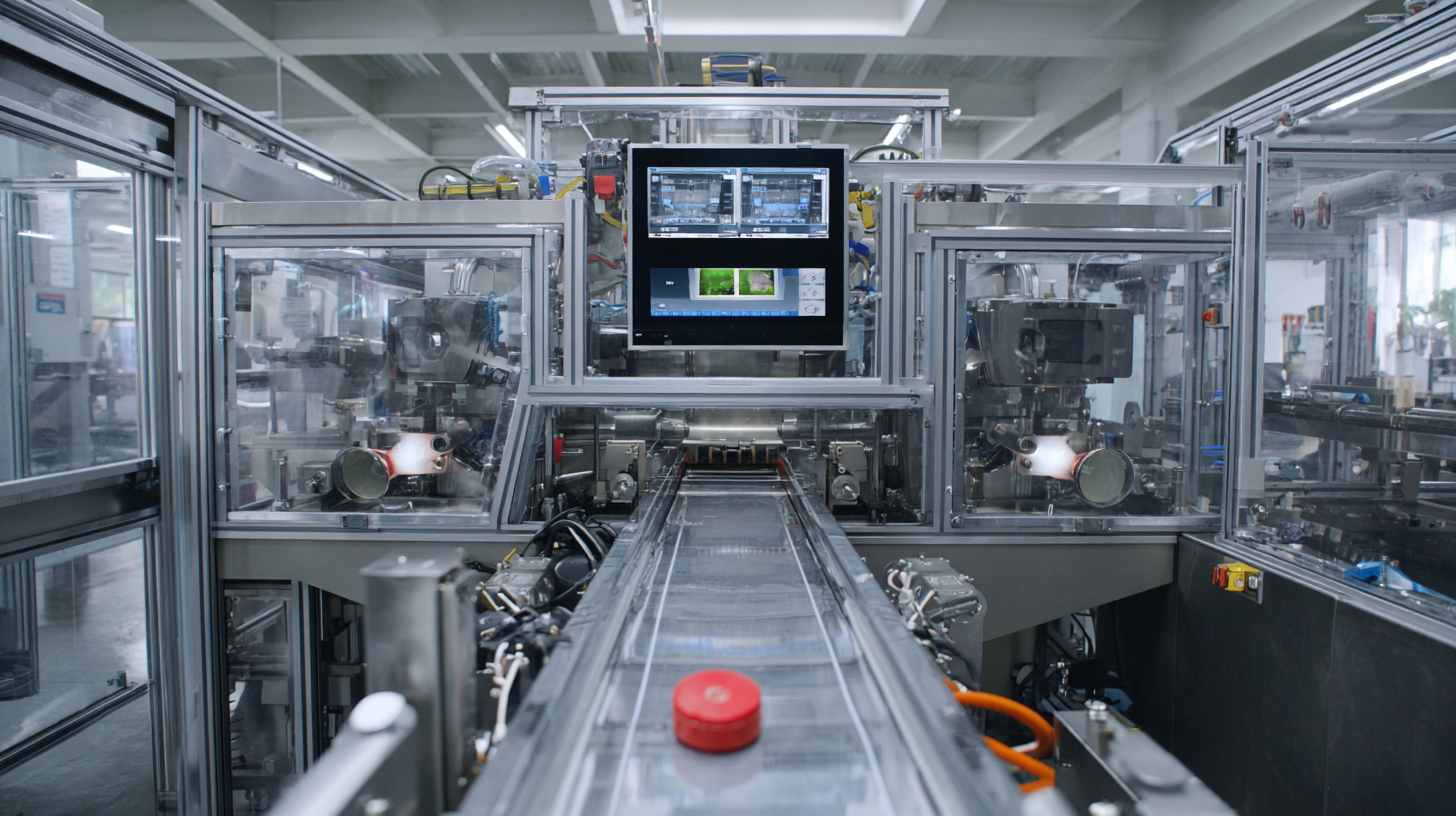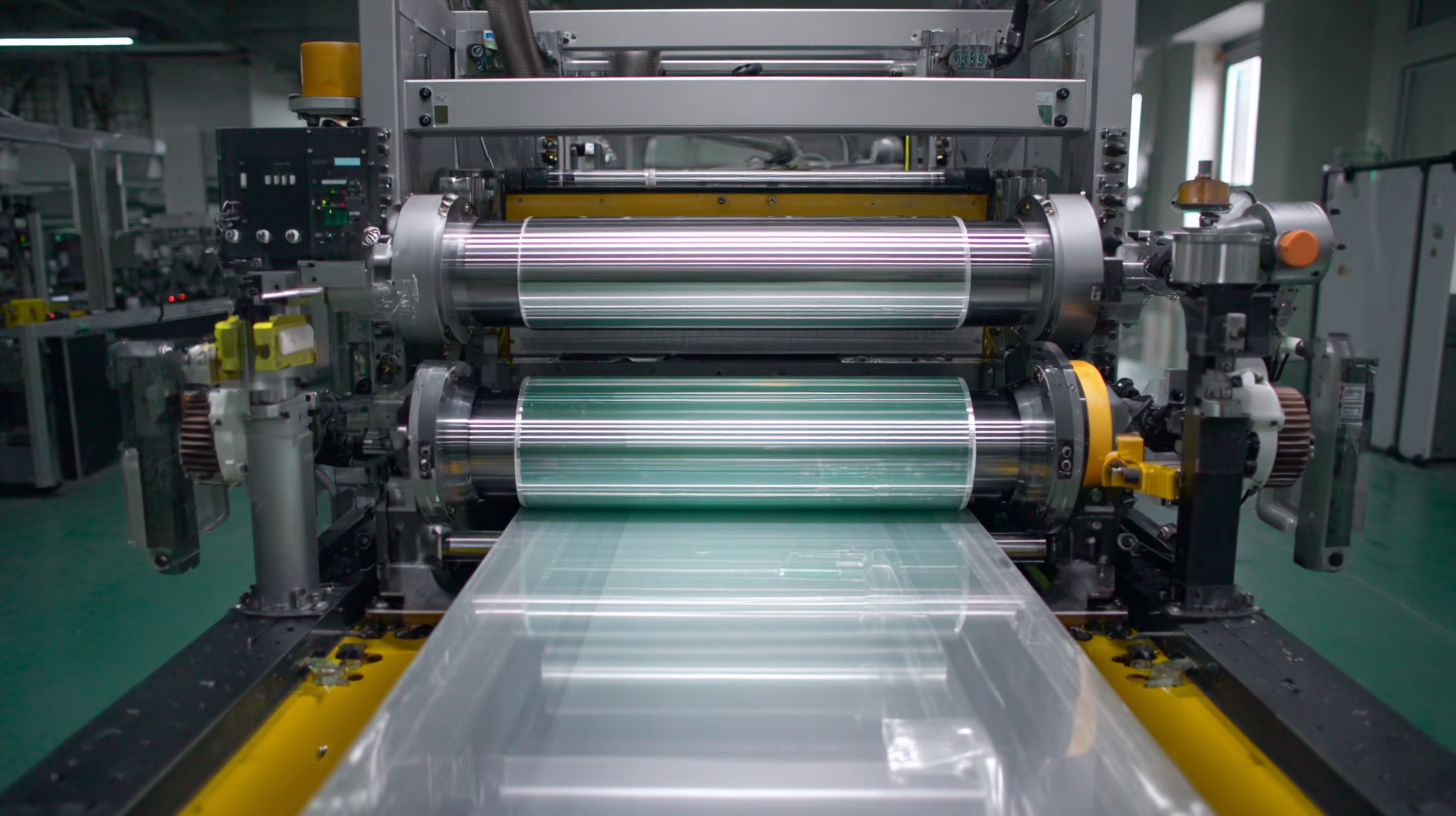
The advancement of Hydrogel Coating Technology is poised to redefine various industries, primarily driven by its diverse applications ranging from medical devices to agricultural products. According to a recent report by MarketsandMarkets, the hydrogel market is projected to reach USD 28.7 billion by 2026, growing at a CAGR of 6.5%. This surge indicates a growing demand for innovative solutions capable of enhancing product performance and sustainability. Central to this evolution is the Hydrogel Coating Machine, which automates and optimizes the hydrogel coating process, ensuring uniformity and precision. As global buyers look toward sustainable and efficient technologies, understanding the capabilities and future developments of hydrogel coatings becomes essential. This guide explores the transformative potential of hydrogel coating technology and what it means for industries and consumers alike.

Revolutionary hydrogel coating technologies are redefining the landscape of material science, offering solutions that are not only innovative but also essential for a variety of applications, from biomedical devices to consumer products. Key characteristics of these coatings include remarkable biocompatibility, enhanced flexibility, and superior adhesion properties. According to a 2023 report by Grand View Research, the global hydrogel market is projected to reach $32.3 billion by 2030, driven by increasing demand in the medical sector. These coatings effectively mimic natural tissues, making them ideal for wound care and drug delivery systems.
When considering hydrogel coatings, it’s crucial to analyze their water retention capabilities and mechanical properties. These hydrogels can maintain moisture while providing a barrier against pathogens, which is particularly beneficial in medical settings. Moreover, recent advancements in smart hydrogels enable responsiveness to environmental stimuli, such as pH or temperature changes, allowing for dynamic applications.
Tip: When sourcing hydrogel coatings, look for suppliers who provide detailed technical data sheets that outline the mechanical properties and performance metrics. This information can help ensure that the selected hydrogel meets specific application needs, whether for therapeutic uses or enhancing the longevity of consumer goods.
Hydrogel coatings represent a significant advancement in materials science, with potential applications spanning a wide array of industries. According to a report by MarketsandMarkets, the global hydrogel market is expected to reach $21.87 billion by 2025, growing at a CAGR of 6.8%. This growth is driven by the increasing demand for biocompatible materials, particularly in the medical and healthcare sectors. Hydrogel coatings can be used in wound dressings, drug delivery systems, and even tissue engineering, offering properties such as moisture retention and biocompatibility.
In addition to healthcare, hydrogel coatings can transform the agriculture sector by enhancing water retention and nutrient delivery in soil. A study published in the Journal of Agricultural Science indicated that using hydrogels can increase crop yields by up to 30% under drought conditions. This eco-friendly approach not only improves agricultural efficiency but also contributes to sustainable farming practices.
**Tip:** When exploring hydrogel applications, consider the environmental impact. Opt for hydrogels that are biodegradable or derived from renewable sources to minimize ecological footprints.
**Tip:** Always assess the specific requirements of your industry when selecting hydrogel coatings. Tailored formulations can significantly enhance performance and durability, leading to better outcomes in applications ranging from electronics to consumer goods.

The growing demand for advanced hydrogel coating technologies has spurred a comparative analysis of various types, each offering unique benefits. Among the most notable types are polyacrylamide, polyethylene glycol, and natural hydrogels such as alginate and chitosan. According to a market research report by MarketsandMarkets, the hydrogel market is expected to reach USD 20.5 billion by 2026, expanding at a CAGR of 6.9% from 2021. This growth is largely driven by the increasing application of hydrogels in medical devices, electronics, and agricultural sectors.

Polyacrylamide coatings are renowned for their tunable properties, allowing for customization based on specific application needs. In contrast, natural hydrogels, despite their biodegradability and biocompatibility, can vary widely in performance based on their source and processing methods. A recent study published in the Journal of Biomedical Materials Research highlighted that polyethylene glycol hydrogels exhibit superior mechanical properties and resistance to degradation, making them ideal for load-bearing applications.
Tip: When selecting a hydrogel coating, consider the specific application requirements and performance characteristics, including elasticity, mechanical strength, and biocompatibility. Additionally, always stay updated with the latest developments in hydrogel research to leverage new innovations tailored to your needs.
The development of hydrogel coating technology is poised for transformative growth, driven by advancements in materials science and increasing applications across various industries. According to a report by Grand View Research, the global hydrogel market is expected to reach USD 20.1 billion by 2025, growing at a CAGR of 5.7%. This growth underlines the rising demand for hydrogel coatings in biomedical, consumer goods, and electronics sectors, where their unique properties such as biocompatibility, moisture retention, and flexible adhesion are leveraged.
A particularly promising trend in hydrogel technology is the integration of smart functionalities, including self-healing and antibacterial properties. Recent studies indicate that incorporating nanoparticles can enhance these hydrogels, making them suitable for more complex applications, like drug delivery systems and advanced wound care. As industry players continue to innovate, the focus on sustainability will also gain momentum, with bio-based hydrogels claiming a larger market share. The combination of innovative formulations and eco-friendly materials is set to redefine the landscape of hydrogel coatings, making them a focal point for global buyers in the near future.
When selecting hydrogel coatings, global buyers must consider several factors to ensure they meet industry standards and user requirements. According to a recent report by MarketsandMarkets, the global hydrogel market is projected to reach USD 19.8 billion by 2026, growing at a CAGR of 8.2% from 2021. This growth reflects an increasing demand for innovative materials in the fields of healthcare, electronics, and agriculture, requiring buyers to be well-informed about the specific needs of their applications.
One crucial consideration is the biocompatibility of the hydrogels, especially for medical devices and wound care products. The FDA classifies hydrogel materials, such as polyvinyl alcohol and polyacrylamide, based on their properties and intended use, which can directly influence their performance and safety in sensitive applications. Additionally, it's essential to evaluate the mechanical properties of hydrogel coatings, including adhesion strength and flexibility, to ensure their effectiveness in various environmental conditions. A comprehensive analysis of these factors can guide buyers in making informed decisions that align with their operational requirements and regulatory compliance.
| Property | Consideration | Impact on Performance | Relevance to Buyers |
|---|---|---|---|
| Biocompatibility | Ensure safety for biological applications | High; influences user safety | Critical for medical and cosmetic applications |
| Water Retention | Assess moisture retention capacity | Moderate; affects longevity and efficacy | Important for agricultural and cosmetic domains |
| Mechanical Strength | Evaluate resistance to deformation | High; supports durability of coatings | Essential for protective applications |
| Thermal Stability | Consider performance under varying temperatures | Moderate; affects application conditions | Relevant for industrial usage |
| Cost-Effectiveness | Assess production and application costs | High; influences purchasing decisions | Critical for global competitiveness |